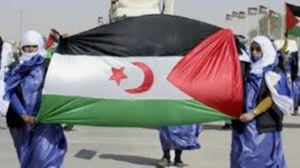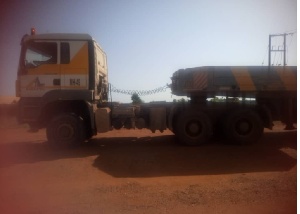Africa News of Tuesday, 3 June 2025
Source: www.ghanawebbers.com
UK backs Morocco's plan for disputed Western Sahara
The UK has supported Morocco's plan to resolve the Western Sahara conflict. This decision is part of a deal for investment projects linked to the 2030 men's football World Cup.
For decades, British governments have remained neutral on Western Sahara. The UN classifies it as a "non-self-governing territory."
UK Foreign Secretary David Lammy announced support for Morocco's autonomy plan. This plan grants Western Sahara autonomy while giving Morocco ultimate sovereignty.
During his visit to Rabat, Lammy called the proposal "credible and pragmatic." He signed an agreement to enhance collaboration on infrastructure projects for the World Cup.
Morocco will host the tournament with Spain and Portugal in five years. Lammy stated that this deal allows British businesses to thrive in football.
Algeria, which supports Sahrawi independence, expressed regret over Lammy's announcement. They noted that Morocco's autonomy plan is 18 years old and hasn't been negotiated with the Sahrawis.
Western Sahara is a mineral-rich former Spanish colony. It has been contested for five decades, making it one of Africa's longest conflicts.
Morocco controls much of the territory, while the Polisario Front seeks independence for Sahrawi people. The African Union recognizes Western Sahara's independence but many countries back Morocco’s stance.
Countries like the US, Spain, France, Germany, and the Netherlands support Morocco. British diplomats decided to align with them in exchange for business deals and commitments from Morocco.
These include supporting self-determination and revising its autonomy plan. A procurement agreement will help UK companies access public tenders in Morocco.
This includes health sector deals and contracts to upgrade Casablanca’s airport. Both sides reaffirmed their commitment to peaceful conflict resolution and respect for self-determination.
Previously, the UK stated that Western Sahara's status was "undetermined." They supported self-determination for its people.
Morocco’s Foreign Minister Nasser Bourita welcomed this policy shift as historic. He said it marks a significant step toward resolving the dispute between nations with an 800-year relationship.
Lammy emphasized that these agreements would benefit British businesses directly. He mentioned that British firms would be prioritized for Moroccan infrastructure contracts.
After intense fighting in the 1970s and 80s, ceasefires were agreed upon in the 1990s but did not resolve underlying issues.
The UN has maintained peacekeepers in the region since 1991. However, a promised referendum allowing residents to choose between independence or Moroccan control has never occurred.











